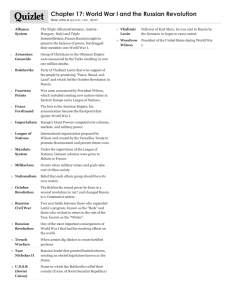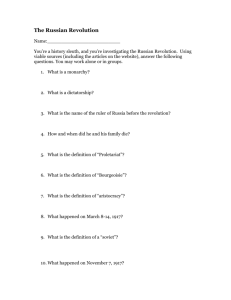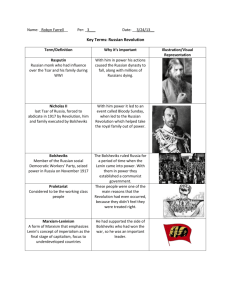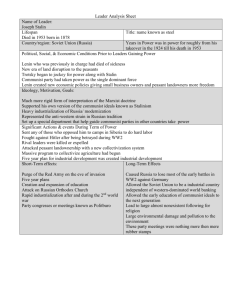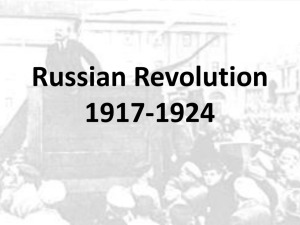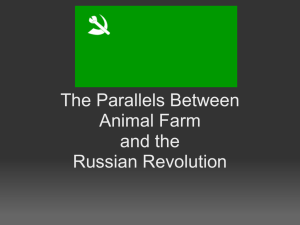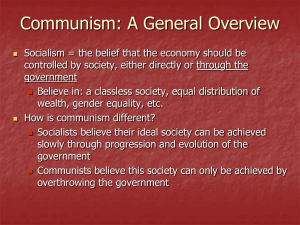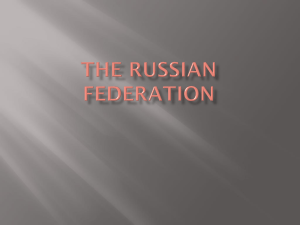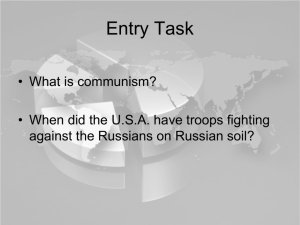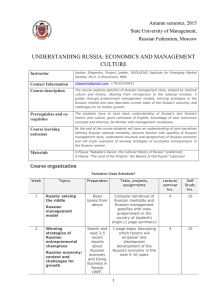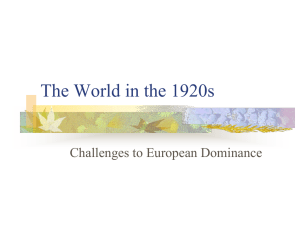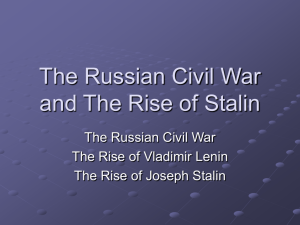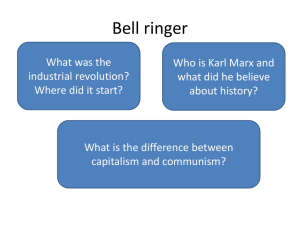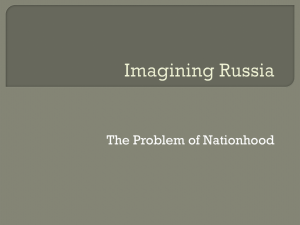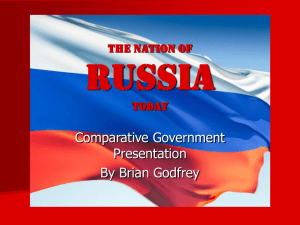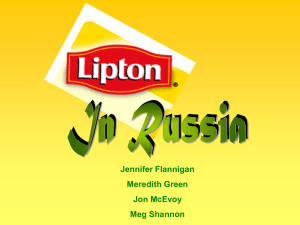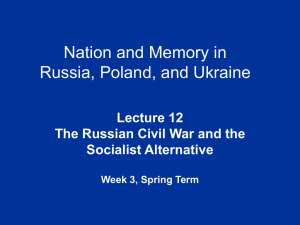Revolution - Cloudfront.net
advertisement
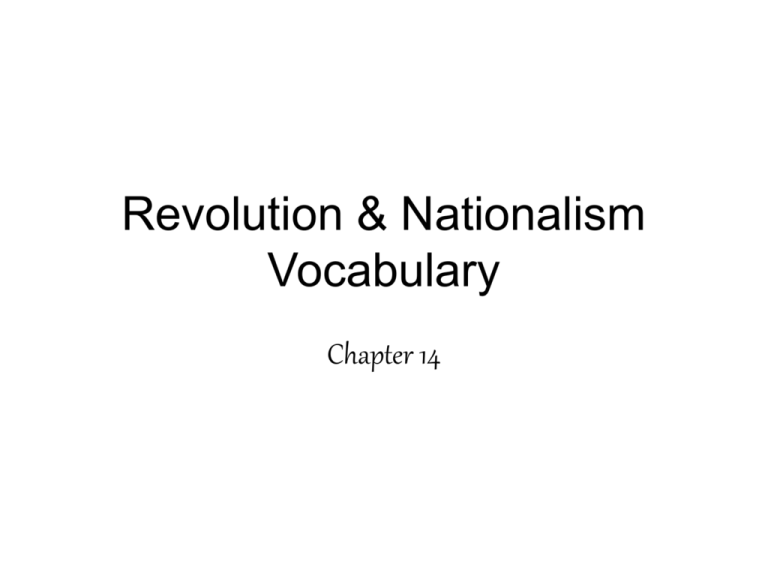
Revolution & Nationalism Vocabulary Chapter 14 Rasputin -Siberian peasant monk who was very influential at the court of Czar Nicholas II and Czarina Alexandra because he could control their son’s hemophilia. He was assassinated by nobles because they feared his increasing role in government affairs. Duma – Russia’s first parliament made up of moderates who wanted a constitutional monarchy. Bolsheviks – a group of revolutionary Russian Marxists who supported a small number of committed revolutionaries willing to sacrifice everything for change and took control of Russia’s government in November 1917. V.I. Lenin – Russian founder of the Bolsheviks and leader of the Russian Revolution and first head of the USSR. Trans-Siberian Railway – The world’s longest continuous rail line. It connected European Russia in the west with Russian ports on the Pacific Ocean in the east. pogroms – organized violence against Jews. provisional government -Temporary government created by the Duma after the Czars abdication. Their decision to continue fighting in WWI caused its loss of power. soviet – Local councils consisting of workers, peasants and soldiers. command economy – A system in which the government made all economic decisions. totalitarianism – a government that takes total, centralized state control over every aspect of public and private life. kulak – a member of a class of wealthy Russian peasants. Great Purge – a campaign of terror in the Soviet Union during the 1930’s in which Joseph Stalin tried to eliminate all the people who threatened his power. collective farm – large government owned farms created by combining many small farms. socialist realism – a style of art in which Communist values and life under Communism are glorified. Joseph Stalin – Russian leader who replaced Lenin as head of the Communist Party and created a totalitarian state by getting rid of all opposition. Kuomitang - the Chinese Nationalist party, formed after the fall of the Qing Dynasty in 1912. May Fourth Movement – a national protest in China in 1919, in which people protested against the Treaty of Versailles and foreign interference. civil disobedience -a deliberate and public refusal to obey a law considered unjust. Mohandas K. Gandhi - political and spiritual leader of India during the Indian independence movement. Long March – a 6,000 mile journey made in 1934-1935 by Mao Zedong and Chinese Communists running away from Jiang Jieshi’s nationalist forces. Mustafa Kemal - Turkish statesman who abolished the caliphate and founded Turkey as a modern secular state (1881-1938) Sun Yixian – The first leader of the Nationalist party who succeeded in overthrowing the last emperor. Mao Zedong – China’s greatest revolutionary leader. He was a founder of the Chinese Communist Party and proclaimed the People's Republic of China.

